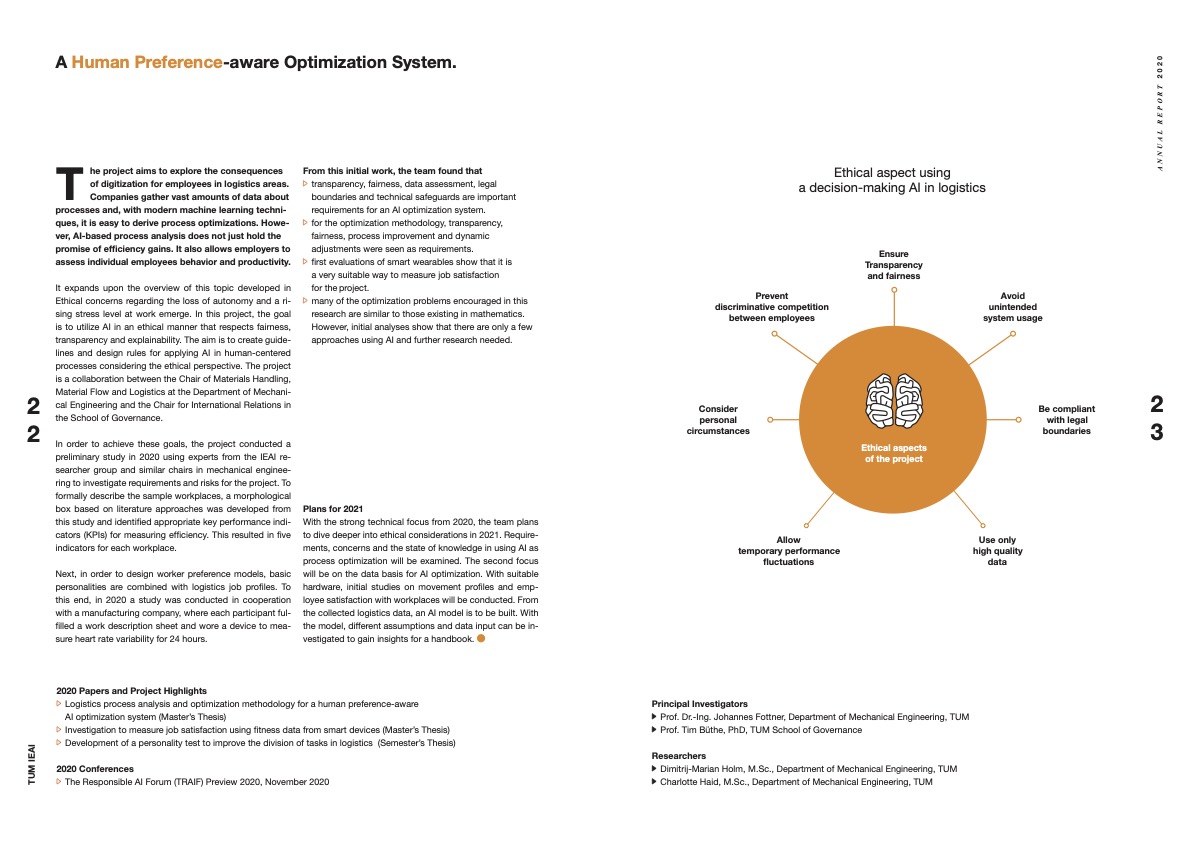A Human Preference Aware Optimization System
Industry 4.0 allows companies to gather vast amounts of data about their processes. Modern machine learning techniques make it possible to analyze these data in ever greater detail, optimizing the underlying processes. While efficiency gains are prompting companies across all industries to consider increasing their AI use, this form of analysis also allows employers to assess individual employees’ behavior and productivity in detail.
This raises the specter of massive increases in employer control, eroding the power of workers and employees within enterprises and society and prompting important ethical concerns regarding a loss of autonomy in the workplace. Labor unions, scholars, and various other observers suggest that these ethical concerns can largely be traced back to a key element of (actual or anticipated) use of AI: It seeks to determine how employees might adjust to better serve the process.
In this project, we develop an alternative approach to AI use, which utilizes employee-related process data to develop a human preference-aware optimization system. The human preference-aware optimization system supports employees by assigning tasks related to their past preferences and so promotes their strengths (and possibly increases satisfaction). Such a system would employ AI in data analysis with the objective of optimizing the processes to suit the employees. The envisaged AI optimization system will be trained with process data and should only be capable of assigning suitable tasks in a way that is respectful of individual differences, without actually judging an employee, and can safeguard and maybe even strengthen employee autonomy.
More broadly, this research will result in guidelines for developing AI-systems and integrating them into industrial environments.
For more information check out the project website.
Research Output:
Personaleinsatzplanung in der Logistik
Handbook:
The increasing digitization of processes enables companies to collect large amounts of data about their processes. An AI-based data analysis promises an increase in efficiency and process optimization and enables employers to assess the behavior and productivity of individual employees in detail. This raises concerns about strong employer scrutiny and ethical concerns about the loss of autonomy in the workplace. The research project “A human preference-aware optimization system” aimed to show ways of using AI ethically and place the employee at the center of process design. This handbook is intended to show companies, employees, members of the works council, and AI developers how a technical implementation of an AI-supported process can succeed, taking ethical concerns into account, using the example of digital shift division.






